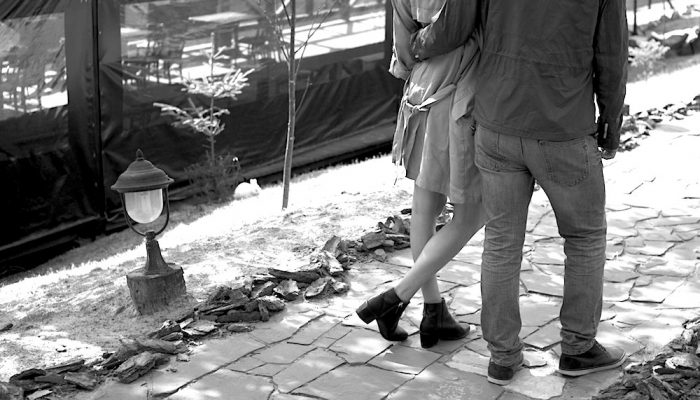A healthy relationship will make us feel happy, loved, secure, cared for, respected, supported, accepted, and confident.
In contrast, an unhealthy relationship will leave us questioning who we are, doubting ourselves, overthinking, overanalysing, and second-guessing everything we do. As time goes on, we will begin to feel disconnected and detached from others around us and even ourselves.
Sadly, this can happen so subtly that an individual may not even realise that they are within an unhealthy or toxic relationship. This unawareness of the situation could be conscious or subconscious if we aren’t ready to accept or acknowledge our existing situation.
There are seven things that we do that keep us in toxic relationships and stop us from finding true love where we can feel unconditionally accepted, mutually respected, and safe enough to be perfectly imperfect.
1. Denial and avoidance.
When we aren’t ready to deal with a situation, we can convince ourselves that nothing is wrong by telling ourselves that “Everything is fine,” “Everything will be okay,” “It’s not as bad as it seems,” or “Other people have it worse.” This type of thinking is not helpful, nor is it healthy for your love life. In order to change a situation, we have to acknowledge and accept that something isn’t right and needs our attention.
2. Running away from our feelings.
Our feelings can be grouped into two categories: “comfortable” and “uncomfortable.” Just like physical pain is there to bring our attention to the behaviour, activity, or act that is causing us pain, the “uncomfortable” feelings are there to cause emotional pain to bring our attention to a situation or area of our life that isn’t working for us. By focusing on our feelings, we will be able to notice triggers, patterns, or certain things that our partner is saying or doing to activate “uncomfortable” feelings.
3. Being “mind full” instead of “mindful.”
Feeling lost, confused, overwhelmed, overanalysing, or overthinking in a relationship could be signs of being in an unhealthy or toxic relationship. Having a busy head, full of thoughts, will cloud our judgement and clarity of our current relationship situation. It is therefore important for us to anchor our thoughts to create a switch from being “mind full” to mindful. We can do this by reflecting on the thought that is making us feel upset, emotional, or distressed.
After identifying the thought, we rationalise it by asking ourselves:
>> How do I know this thought is true?
>> How do I know this thought is not true?
>> What is another perspective to this situation?
Using facts to help rationalise thoughts can give us more clarity and certainty around our situation. It can also stop us from doubting ourselves and give us the confidence to create positive changes.
4. Unrealistic expectations.
Family, social, and self-imposed pressures can sometimes keep us in situations that we know we shouldn’t be in. The fear of letting others down, disappointing our families, hurting our children, or failing at a relationship can keep us in a relationship that we know might be bad for us.
We can push past this boundary by asking ourselves:
>> Am I putting more pressure on myself and setting up expectations of myself that are almost impossible?
>> How realistic is this expectation?
>> What would be more realistic?
5. Critical thinking.
Telling ourselves that we are being silly, sensitive, or overreacting to a situation minimises our feelings and the seriousness of a toxic relationship. If we are feeling hurt or upset in our relationship, then we have to speak to ourselves from a place of kindness and compassion rather than being harsh, cruel, critical, and brushing our concerns under the carpet.
We can move away from the critical thinking by this simple yet effective visualisation exercise:
>> Pick someone that you love dearly or are close to and visualise this person.
>> What would you say to them if they were in your situation?
>> What advice would you give them?
>> Why does this advice not apply to you?
6. Fear of judgment.
We can often stay in relationships that are not serving us due to a fear of being judged by other people—the fear of what they will think or say or how they will treat us. Often, this fear of judgment is unfounded and comes from nowhere other than our own insecurities and anxieties.
To help release this fear, ask:
>> Who are these “people”?
>> What are they saying?
>> How valuable or important is their opinion to me?
>> These “people” who are judging me, how happy are they in their lives?
Before we start taking advice and guidance from others, we must remind ourselves that the opinion of others are often coming from their own experience in life and not based on what is best for you.
7. Fear of the unknown.
Despite a relationship being unhealthy or toxic, it is never easy to walk away from it. We are stepping out of our comfort zone into a zone where we don’t know what will happen, how we will move on, or if we will even be able to move on. It is like starting all over again, and that can be intimidating, scary, and daunting for anyone!
During times like this, it is important to empower ourselves with knowledge by asking:
>> Who can help me?
>> How can they help me?
>> Where will I go?
>> How will I financially sustain myself?
>> Who will be my support structure?
These questions will help us plan, prepare, and be proactive, helping us feel more in control of our future.









Read 5 comments and reply